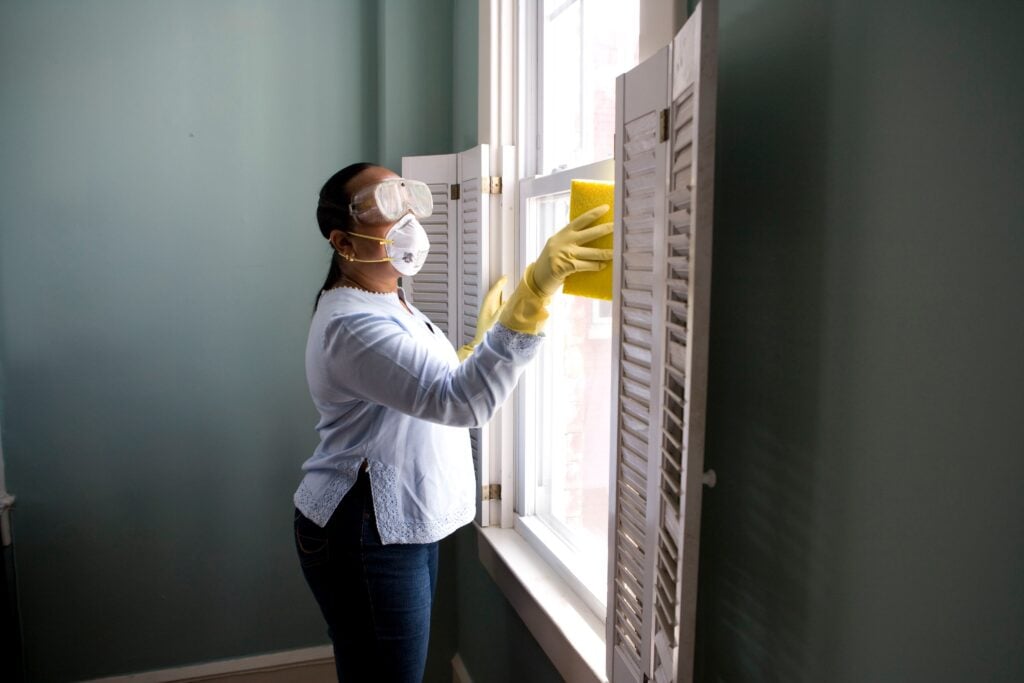Can A Jointly Owned Home Be Sold To Pay For Care?
While jointly owned homes are commonly shared between partners/spouse or blood relatives, there is a fine line between being a Joint Tenant or a Tenant In Common as it divides the ownership of a house under separate rules.
As joint tenants, the following rules apply with regards to property ownership:
- both owners have equal rights to the property
- the property is automatically transferred in whole to the surviving owner in case one of them dies
- the ownership cannot be transferred by either of them at will
However, in the case of tenants in common, there may be different proportions of ownership that each owner has, ownership rights of the property are not automatically transferred to the surviving owner if one of them dies while the ownership of one’s shares can be transferred to someone else.
Can A Jointly Owned Home Be Sold To Pay For Care?
A jointly owned home can only be sold to pay for care if both parties have a mutual agreement on the sale and are willing to sell the house for one of them to receive care. However, if the joint owners are spouses or partners and one of them continues to reside at the premises, the property cannot be considered in the means-tested carried out by local authorities. Hence, it cannot be sold to pay for care.
According to an article published in The Guardian in such situations, it is only the proportion of ownership that a care claimant has in the property that will be considered for their means assessment. The purpose of this assessment by local councils is to calculate the amount that the claimant can afford to contribute towards their care home fees and the amount that the state is supposed to fund. There is no obligation on the joint owner to hand over their proportion of ownership or agree to a sale of the property due to the other owner being in care.
If you don’t want to consider selling your home, there are other options to help you with care home expenses. If you are a UK resident, the amount of savings you can have before having to contribute towards care home fee depends on whether you live in England, Wales, Northern Ireland or Scotland. Below is the threshold for each country:
- England: £23,250
- Wales: £50,000
- Northern Ireland: £23,250
- Scotland: £28,750
Anyone who holds savings above this amount will have to contribute towards their care home fees until their savings fall below this threshold. When that homes, claimants will be able to receive financial aid from the state through their local councils.
If someone is not willing to sell their house, there is also an option of Deferred Payment Agreement according to which the homeowner signs a formal agreement with their local council. The local council agrees to bear the entire care home expense of the claimant until they are ready to sell their house or the property is sold after the death of the claimant.
If you want to check your eligibility for the DPA scheme, below is a list of key criteria to be met:
- your savings and capital are less than £23,250
- you have no other funds to pay for care home expense
- you are a homeowner or are able to offer any other asset as security
- in case of your home serving as security, it must be unoccupied
To assess the circumstances that revolve around funding for care home fees, we will learn about the following topics in detail through this article:
- Who Pays Care Home Fees?
- How Are Care Home Fees Paid For?
- Can Council Take My House To Pay For Care?
- How Much Can You Keep Before Paying For Care?
- Can I Get Care At Home?
Who Pays Care Home Fees?
Care home fees can be borne by the state, partially or wholly, depending upon the circumstances of the claimant or they may be self-funded, partially or wholly by those in care. According to estimates, nearly half a million people in the UK need a care home facility, Out of these 50 per cent of care home residents are self-funded while the rest of them are state-funded.
The amount that one pays towards their care costs depends on whether they live in England, Scotland, Northern Ireland or Wales (each country has their capital thresholds that determine the claimant’s contribution as compared to that of the state) as well as the following financial aspects of the claimant:
- income
- savings
- investments
- property
How Are Care Home Fees Paid For?
Care home fees may be funded by either of the following means:
- Self-funded
- State-funded
In case of self-funded care home costs, the claimant either has income, savings or capital that contribute towards the expense or they may sell or rent out their house to pay for care home bills. Individuals on a low income, low savings or those claimants who do not own a property or those who may not be able to generate sufficient funds from the sale of their house may consider staying in their house and claim Attendance Allowance.
If the state is funding your care home fees, it will be routed through your local council and your benefits such as state pension and pension credit will be used to cover the costs. If you have capital below £23, 850, the state will bear most or in some cases all of your care home expenses.
For more funding options click here how to avoid selling your house for care home fees
Can Council Take My House To Pay For Care?
No, the council will not forcefully claim your house to pay for care especially if it is in use of your spouse/partner or any qualifying dependant(s); which include the following:
- spouse/civil partner/unmarried partner
- a close relative over 60 years of age
- a close relative below 16 years of age (legal dependant)
- former spouse pr partner if they are a single parent
If a homeowner moves into a care facility indefinitely and there is no claim on the residence of their house (this means that there is no family member or a qualifying dependant living in their house) the council may then seek sales of their property. However, this too doesn’t take place on an immediate basis. Yet, in such situations, the homeowner may not qualify for care costs to be taken care of by the council.
Care costs are means-tested. This means if someone needs care but is unable to bear the expenses the council takes care of them. This is a decision taken after a detailed financial assessment of the eligible individual, their income, savings and property. To learn more about when the council might pay for your social care you may want to research on your own prior to making a decision.
How Much Can You Keep Before Paying For Care?
Claimants are permitted to keep a weekly allowance of £24.90 per week for themselves before paying for care home fee. People who are on pension credit will be allowed an additional weekly amount of £5.75.
The good news for claimants is that according to a recent announcement by the UK Government, with effect October 2023 nobody will have to pay more than £ 86,000 as care home fee. Once they have paid the amount, the remaining expense will be borne by the state and funded through their local council authorities.
If the claimant’s savings are being assessed to pay for care home fees, the following criteria will be applicable in this case:
- If someone has savings over £ 23,250, the claimant will have to bear the entire cost of the care home fees
- If someone has savings of £14,250–£23,250, the claimant will have to contribute most of their weekly income towards care home fees. They will also pay an assumed extra amount of £1 per £250 of capital that they have
- If someone has savings below £14, 250, the claimant will not be required to pay for their care home fees from this amount and will have to pay from their weekly income.
Can I Get Care At Home?
Sometimes it is advisable for individuals on low income to consider their situation and make a decision whether they will be better off staying home and receiving care (as well as state benefits) or will they be taken care of better in a care home facility.
In such cases, they may consider applying for any of the following options:
- Attendance Allowance
- Personal Independence Payments
Attendance Allowance is a tax-free state benefit applicable to those individuals who have surpassed the state pension age and require supervision due to their health condition. It is aimed towards providing a monthly allowance to those individuals who need assistance with meeting the extra costs of a disability or the support of a carer due to old age.
PIP (Personal Independence Payment) is a benefit intended for people aged 16 years and above; aimed to cover the additional daily costs of living with a long-term disability or illness; be it a physical or mental health condition. It is gradually replacing DLA (Disability Living Allowance).
Claimants may be able to receive a premium on the following benefits as well if they are eligible for PIP:
- income support
- jobseeker’s allowance
- working tax credit
- employment and support allowance
- pension credit
- housing benefit
Conclusion:
While a home is generally considered by senior citizens as the first asset to be considered for sale when having to pay for care home fees, a jointly owned property may not serve the purpose. This may be either due to one of the joint owners (who may or may not a partner/spouse) living in the residential property or due to the fact that the joint owner is simply not willing to sell their share of the property.
However, there are many alternate options to consider self-funding to pay for care home fees (or a portion of it). From a Deferred Finanails Payment plan to using your personal savings or selling any other asset that you may have sole ownership of and even receiving care at home, claimants can choose a suitable alternative when it comes to the inability to sell a jointly owned property.
FAQs: Can A Jointly Owned Home Be Sold To Pay For Care?
Do I have to sell my house to pay for my husband’s care?
No, you do not have to sell your house to pay for your husband’s care. As long as one of the partners/spouses occupies a residential property, local authorities cannot consider it to be sold for the payment of care home fees. Additionally, such properties are termed disregarded properties. This means it will also not be accounted for when the financial assessment for the claimant is carried out to calculate their income, savings and capital.
How can I protect my home from care home fees?
If you do not wish to consider your home for sale to pay for care home fees, you can plan in advance and build up sufficient savings that can be used when the time comes. Additionally, you may apply for a Deferred Financial Payment plan through your local council. In some cases, claimants have been known to receive care at home rather than moving into a care facility.
Can I gift my house to my son to avoid care costs?
While there is no legal restriction on gifting your house to your son just to avoid care home fees, there is something ethically wrong with deliberately avoiding paying for an old-age benefit when you can afford to. Also, in certain cases, when local authorities have found such incidents to take place close to care home claimant’s transfer to the facilities, they have been able to claim this as a deprivation of assets and reclaim the property to pay for the residents’ care home fees.
Do dementia sufferers have to pay care home fees?
Yes, dementia sufferers have to pay care home fees as well. The amount of their contribution towards care home fees depends upon the results of the financial assessment of their income, savings and capital carried out by local authorities.
Can a nursing home take everything you own?
Nursing homes do not claim possession of anything that you own nor are they authorised to do so. It is the local council that arranges a financial assessment of the claimant’s assets to calculate the amount of payment due upon them as well the support to be extended by the state. However, under no circumstances is there forceful possession of any claimant’s property, assets or capital by any legal body,
References:
Jointly Owned Property and Care Home Fees
Factsheet 38 – Property and paying for residential care
AVOIDING CARE HOME FEES IN 2021 | Tips on what to do!
Who Pays for What in 2021/22? – carehome.co.uk advice
Paying care home fees | Social care means tests
Paying for your own social care (self-funding)
Paying your own care costs if you’ve used all your savings
How To Avoid Selling Your Home To Pay For Care…
Paying for permanent residential care | Paying for a care home



